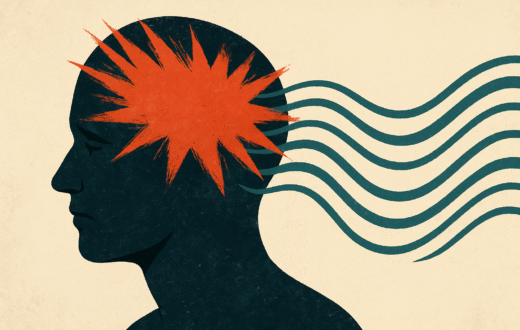- 3.2 Concepts psychologiques clés liés aux services de santé mentale dans les organisations éducatives et professionnelles, Articles de presse
The Illusion of Control: When Overthinking Becomes a Trap
Overthinking is a mental loop that blends deep uncertainty with a surprising level of self-assurance. It’s the act of dwelling obsessively on a situation, whether past, present, or future, driven by a sense that something remains unresolved and must be « fixed. » Despite signs that a clear resolution may not be attainable, the overthinker persists, convinced they can and must reach one.
This mental state embodies a paradox: on one side, there’s the belief that life cannot proceed without clarity (extreme self-doubt); on the other, the conviction that the thinker can resolve their mental unrest alone (extreme or even over-confidence).
Much like other forms of obsession, overthinking can be a way of fleeing the unpredictable nature of life. For the mind that craves structure, chaos is only tolerable when it’s viewed as temporary—a path toward eventual order. In this way, perfectionism becomes a coping mechanism, a quest for mental peace through control.
It’s often said that instead of seeking constant relief, we should pursue courage. While it may sound like a cliché, there’s truth in it. At first glance, overthinking might appear as an act of bravery, since it involves constant mental effort, but in truth, it often signals avoidance rather than action.
Problem-solving, in its healthy form, prepares us for a range of outcomes and acknowledges our human limits. Overthinking, by contrast, is rooted in fear— a desire to predict and prevent every possible negative result. This is why it’s frequently linked to obsessive-compulsive disorder (OCD), where both self-doubt and an exaggerated sense of responsibility collide.
Overthinkers often construct their lives around avoiding failure, rejection, harm, or loss. But this protective strategy comes at a cost: it narrows the emotional range, reducing space for joy, spontaneity, and emotional intimacy. Ironically, many of the worst-case scenarios envisioned by the overthinker are either unlikely or survivable.
In therapy, professionals often help individuals challenge their distorted thinking. One question they might ask: What is the cost of constant overthinking? As I sometimes say, anxiety is not a victimless crime. Every moment spent worrying is a moment stolen from presence, connection, and growth.
Key Reflective Questions:
- Am I catastrophizing?
Ask yourself: If the worst happens, will it trigger an unstoppable chain of disasters? Or is that just fear talking? - Can I accept that I cannot predict everything?
We often fall into the trap of hindsight bias, believing we “should have known better.” But expecting ourselves to be all-knowing is unrealistic—and unfair. - Is my thinking all-or-nothing?
Do I feel unsafe unless everything is perfect? This mindset, though comforting in theory, creates a rigid life. As shown in The Great Gatsby, the obsessive pursuit of ideal outcomes can end in self-destruction.
Do I feel alone in this?
Overthinkers often isolate themselves, seeing asking for help as a weakness. But seeking support can be a mutual gift, helping both giver and receiver build trust and compassion.





